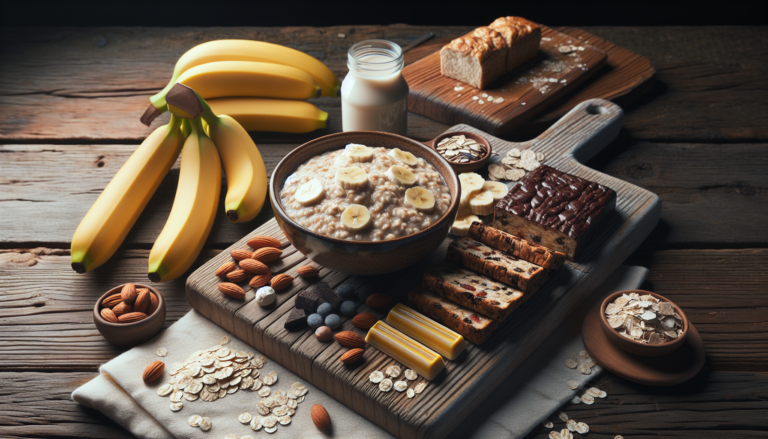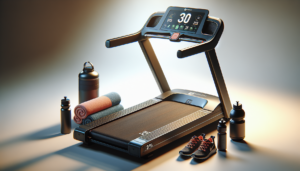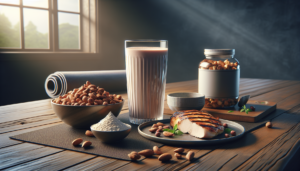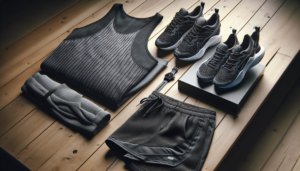Understanding the Importance of Carbohydrates for Workouts
Proper nutrition is essential for athletes and fitness enthusiasts to perform at their best. One key aspect of pre-workout nutrition is carbohydrate intake, as carbs play a crucial role in fueling the body for exercise. Understanding how many carbs to consume before a workout and the optimal timing of this intake can greatly impact your performance and recovery.
Carbohydrates are the primary energy source for the body during exercise, especially during high-intensity or endurance activities. When you eat carbs, they are broken down into glucose, which is then stored in the muscles and liver as glycogen. During exercise, the body relies on these glycogen stores to provide energy for working muscles.
Why Carbohydrates are Essential for Exercise
Carbohydrates are critical for maintaining energy levels during exercise. When you engage in physical activity, your body primarily relies on carbohydrates to fuel your muscles. As the intensity and duration of the workout increase, the body’s reliance on carbs becomes even more significant.
During exercise, the body breaks down glycogen stores in the muscles and liver to release glucose into the bloodstream. This glucose is then transported to the working muscles, providing them with the energy needed to continue the activity. Without adequate carbohydrate intake, glycogen stores can become depleted, leading to fatigue, reduced performance, and even the breakdown of muscle tissue for energy.
The Role of Carbohydrates in Endurance and Strength Training
The importance of carbohydrates varies depending on the type of exercise you engage in. For endurance activities such as running, cycling, or swimming, carbohydrates are the primary fuel source. These activities require a steady supply of energy over an extended period, and carbs are the most efficient way to provide this energy.
In strength training, carbohydrates play a slightly different role. While they are not the primary fuel source for short, intense exercises like weightlifting, having adequate glycogen stores is still important. Carbs help maintain energy levels throughout the workout, allowing you to perform more reps and sets, ultimately leading to better muscle growth and strength gains.
How Many Carbs to Consume Before a Workout
Now that we understand the importance of carbohydrates for exercise, let’s dive into the specifics of how many carbs to consume before a workout. The amount of carbs you need will depend on several factors, including your body weight, the type and duration of your workout, and your overall fitness goals.
Recommended Carbohydrate Intake Based on Body Weight
A general guideline for carbohydrate intake before exercise is to consume 1-4 grams of carbs per kilogram of body weight, 1-4 hours before your workout. For example, a 150-pound person weighs approximately 68 kilograms. Therefore, they should aim to consume between 68-272 grams of carbs as part of their pre-workout meal.
| Body Weight (lbs) | Body Weight (kg) | Carbohydrate Intake Range (g) |
|---|---|---|
| 120 | 54.5 | 54.5-218 |
| 150 | 68 | 68-272 |
| 180 | 82 | 82-328 |
| 210 | 95.5 | 95.5-382 |
Timing Your Carbohydrate Intake for Optimal Performance
In addition to the amount of carbs, the timing of your pre-workout nutrition is crucial. Consuming carbs 1-4 hours before exercise allows your body sufficient time to digest the food and convert it into usable energy.
Eating closer to your workout (30-60 minutes prior) may be beneficial for shorter, high-intensity exercises. In this case, opt for easily digestible carbs like fruit or a small serving of simple carbs. However, be cautious not to eat too close to your workout, as this may lead to gastrointestinal discomfort.
Proper nutrient timing ensures that you have enough energy to power through your workout while minimizing any potential stomach issues.
Best Carbohydrate Sources for Pre-Workout Nutrition
Choosing the right carbohydrate sources for your pre-workout meal is key to optimizing your performance. The best carbohydrates for pre-workout nutrition are those that are easily digestible, provide quick energy, and don’t cause gastrointestinal distress.
Top Foods to Eat Before a Workout
Some excellent pre-workout carbohydrate options include:
- Oatmeal: A complex carbohydrate that provides sustained energy release.
- Banana: A easily digestible fruit high in simple carbs for quick energy.
- Brown rice: Another complex carb source that offers steady energy levels.
- Sweet potato: Rich in carbs and fiber, sweet potatoes are a nutritious pre-workout choice.
- Energy gel: Concentrated carbohydrate source designed for quick energy during endurance activities.
When selecting your pre-workout meal, consider the timing of your workout and choose foods that you tolerate well to avoid any stomach discomfort.
Foods to Avoid Before Exercising
Just as important as choosing the right foods is avoiding the wrong ones. Certain foods can cause gastrointestinal issues or hinder your performance when eaten too close to your workout. These include:
- High-fat foods: They slow down digestion and may cause stomach upset.
- High-fiber foods: While fiber is important for overall health, consuming too much before exercise can lead to bloating and discomfort.
- Spicy foods: These can cause heartburn or indigestion, especially when consumed close to physical activity.
- Carbonated drinks: They can cause bloating and gas, making exercise uncomfortable.
Focus on easily digestible carbs and be mindful of your individual tolerance to different foods to optimize your pre-workout nutrition.
Carb-Loading for Endurance Events
For athletes participating in endurance events lasting longer than 90 minutes, carb-loading can be a useful strategy to maximize glycogen stores and delay fatigue. Carb-loading involves increasing your carbohydrate intake in the days leading up to the event to ensure your muscles are fully stocked with glycogen.
What is Carb-Loading and How Does it Work?
Carb-loading is a nutritional strategy that aims to maximize the storage of glycogen in the muscles and liver. By consuming a high-carbohydrate diet in the days before an endurance event, athletes can increase their glycogen stores, providing more energy for the prolonged activity.
During endurance exercise, the body heavily relies on glycogen for fuel. As the activity continues, glycogen stores become depleted, leading to fatigue and decreased performance. By starting the event with fully loaded glycogen stores, athletes can maintain their performance for a longer duration.
When and How to Implement Carb-Loading
The most common carb-loading protocol involves increasing carbohydrate intake to 8-12 grams per kilogram of body weight per day for 1-3 days before the event. This is typically combined with a reduction in training volume to minimize glycogen depletion.
For example, a 150-pound (68 kg) athlete would aim to consume 544-816 grams of carbs per day during the carb-loading phase. It’s essential to choose high-carbohydrate foods that are easy to digest and tolerate well to avoid any gastrointestinal issues.
It’s important to note that carb-loading is most beneficial for endurance events lasting more than 90 minutes. For shorter events or strength-based activities, a balanced pre-workout nutrition plan focusing on moderate carbohydrate intake is generally sufficient.
Hydration and Its Role in Pre-Workout Nutrition
While carbohydrates are a key focus of pre-workout nutrition, hydration also plays a crucial role in optimizing performance. Adequate fluid intake before, during, and after exercise is essential for maintaining blood volume, regulating body temperature, and transporting nutrients to working muscles.
Importance of Staying Hydrated
Dehydration can have a significant negative impact on athletic performance. Even mild dehydration (1-2% body weight loss) can lead to decreased endurance, reduced strength and power output, and impaired cognitive function. Severe dehydration can cause more serious health issues, such as heat illness and muscle cramps.
Proper hydration during exercise helps maintain blood volume, which is crucial for delivering oxygen and nutrients to working muscles. It also helps regulate body temperature through sweating, preventing overheating and heat-related illnesses.
Tips for Maintaining Proper Hydration
To ensure optimal hydration for exercise, follow these tips:
- Drink 17-20 ounces of water 2-3 hours before exercise.
- Consume another 8 ounces of water 20-30 minutes before your workout.
- During exercise, drink 7-10 ounces of fluid every 10-20 minutes.
- After exercise, drink 16-24 ounces of fluid for every pound of body weight lost through sweat.
- Monitor your urine color: Light yellow to clear urine indicates adequate hydration.
In addition to water, sports drinks containing electrolytes can be beneficial for intense exercise lasting more than an hour or in hot and humid conditions. These drinks help replace electrolytes lost through sweat and provide a source of carbohydrates for energy.
Post-Workout Nutrition for Recovery
While pre-workout nutrition is crucial for fueling your workout, post-workout recovery is equally important. After exercise, your body needs the right nutrients to repair muscle damage, replenish glycogen stores, and support the recovery process.
Balancing Carbohydrates and Proteins After Exercise
Post-workout nutrition should focus on two key macronutrients: carbohydrates and proteins. Carbohydrates are essential for replenishing glycogen stores that were depleted during exercise. Aim to consume 1.0-1.5 grams of carbs per kilogram of body weight within 30 minutes to 2 hours after your workout.
Protein is crucial for repairing and rebuilding muscle tissue that was damaged during exercise. Consuming 20-40 grams of high-quality protein within the same time frame as your carbs can help stimulate muscle protein synthesis and enhance recovery.
Best Foods for Post-Workout Recovery
Some excellent post-workout food options that provide both carbohydrates and proteins include:
- Greek yogurt with berries
- Whole grain toast with turkey and avocado
- Protein smoothie made with banana, milk, and whey protein powder
- Grilled chicken with sweet potato and vegetables
- Egg omelet with cheese and whole grain toast
Experiment with different food combinations to find what works best for you, and don’t forget to stay hydrated by drinking plenty of water or a low-sugar electrolyte drink after your workout.
Personalizing Your Carbohydrate Intake
While general guidelines for carbohydrate intake recommendations and pre-workout nutrition can be helpful, it’s important to remember that everyone’s nutritional needs are unique. Factors such as body composition, fitness level, exercise intensity, and individual goals can all influence the optimal amount and timing of carbohydrate intake.
Consulting with Health Professionals
To fine-tune your pre-workout nutrition plan and ensure you’re meeting your specific needs, consider consulting with a registered dietitian or sports nutritionist. These health professionals can help you:
- Assess your current diet and identify areas for improvement.
- Determine your individual calorie and macronutrient needs.
- Develop a personalized meal plan that aligns with your training schedule and goals.
- Address any specific concerns, such as food intolerances or allergies.
- Monitor your progress and make adjustments as needed.
Working with a qualified professional can take the guesswork out of your nutrition plan and ensure that you’re fueling your body optimally for performance.
Adjusting Intake Based on Individual Needs
As you become more attuned to your body’s responses to different foods and carbohydrate intake recommendations, you may find that you need to adjust your pre-workout nutrition plan. Some signs that you may need to modify your carbohydrate intake include:
- Feeling fatigued or sluggish during workouts
- Experiencing gastrointestinal discomfort after eating certain foods
- Struggling to complete workouts or recover adequately
- Plateauing in your progress despite consistent training
If you notice any of these signs, try experimenting with different types, amounts, and timing of carbohydrates to see what works best for you. Keep a food and exercise journal to track your intake and performance, and don’t be afraid to make changes as needed.
Remember, the key to optimal pre-workout nutrition is finding a plan that supports your individual needs, goals, and preferences. By prioritizing carbohydrate intake, staying hydrated, and refueling adequately after exercise, you’ll be well on your way to maximizing your athletic performance and reaching your fitness goals.






